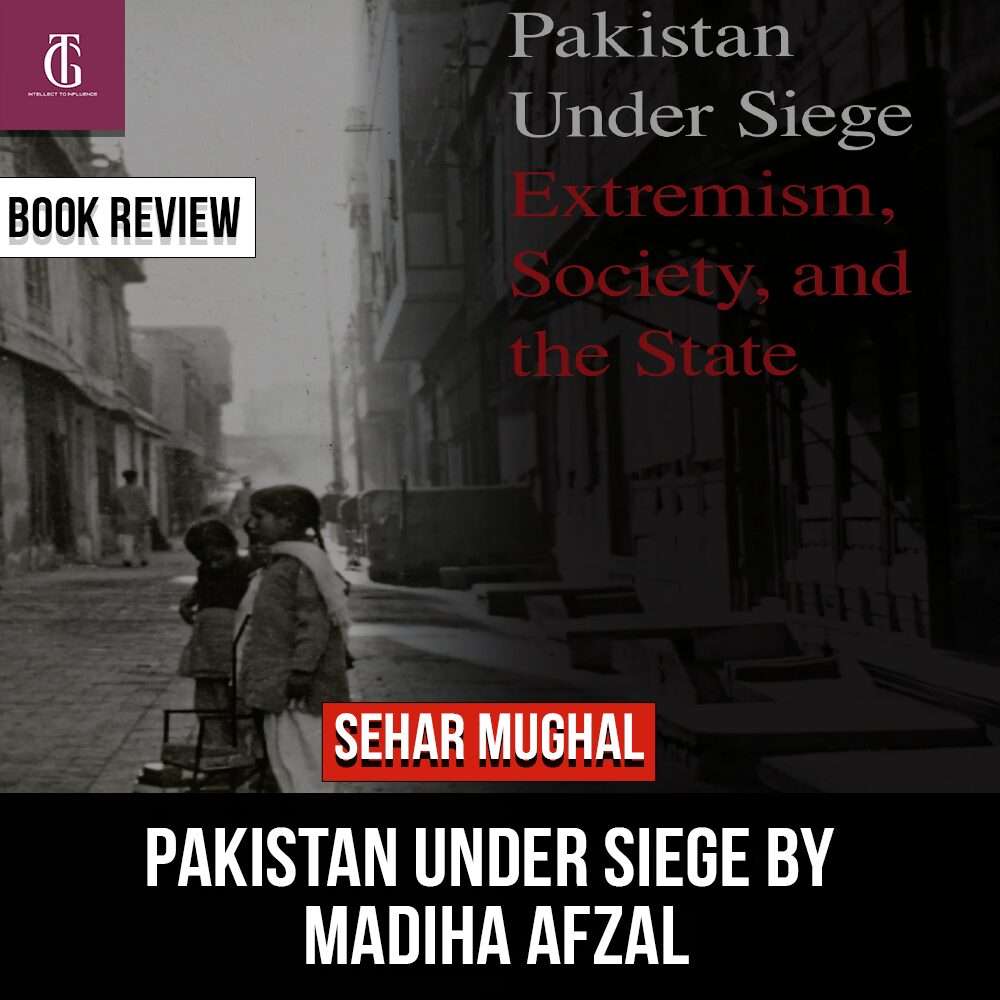In “Pakistan Under Siege,” Madiha Afzal explores Pakistani extremism’s complexities. Instead of only focusing on terrorist threats, Madiha Afzal also explores Pakistani culture’s many eccentricities and problems. Madiha Afzal is an insightful scholar, who uses a combination of rigorous examination, historical backdrop, and personal anecdotes to provide a thorough depiction of Pakistan’s struggle against extremism. Her approach is multi-faceted, which helps us understand this complex issue much better.
Within the six long portions of her well-structured piece “Pakistan Under Siege,” Madiha delves deeply into the many aspects of extremism. In order to provide a comprehensive understanding of the fundamental reasons for extremism in Pakistan, Madiha closely studies the historical foundations of the movement she leads. To sidetrack the topic, she does substantial research by collecting survey data and conducting interviews with regular people to get their perspectives. By doing this, she may be able to make clear their opinions on crucial matters like jihad, religious minorities, terrorist organizations, and Pakistan’s role in the globe.
The effects of Islam and Pakistan’s romantic relationship with India are examined in this book about Pakistan’s judicial system, literature, and educational system. The two primary subjects of this book are Islam and Pakistan’s fixation on India. All the tangled webs of ideology, social conventions, and the state are untangled now. Moreover, Madiha digs deep into the roles played by the military, civilian administrations, and Islamist groups, among others, in the government. She argues that extremist impulses within the nation are growing due to these authorities’ actions.
According to Madiha’s research, education is critical in shaping public opinion on terrorism and global issues. In the book’s closing section, Madiha offers analytical answers to the present difficulties facing the Pakistani government and suggests a complete overhaul of Pakistan’s educational system. For a more accepting culture that values diversity, she lays forth a detailed strategy.
In every chapter, Madiha’s meticulous analysis identifies the origins and manifestations of extremism and offers constructive remedies for Pakistan’s political and social environment. Among Madiha’s numerous contributions to this book is this analysis. For this reason, “Pakistan Under Siege” is a must-read book if you want to understand how to handle the challenges posed by extremism in the region.
Arguments and Insights
- Education and Extremism: The book effectively illustrates how education may promote or counteract radical views. The curriculum substantially influences citizens’ sentiments, type of school (public, private, or madrassa), and length of schooling.
- Conspiracy Theories: Madiha illustrates that conspiracy theories are often hidden underneath reasonable viewpoints. Pakistanis see the world differently as a result of these biases.
- Regressive Laws and Violence: In the 1980s, regressive legislation was implemented, leading to a decline in citizen attitudes and increased vigilante and mob violence.
- State and Militant Relationships: The strategic movements of political actors, such as the military, civil society, and Islamist groups, reveal complex relationships with extremist groups.
While Pakistan Under Siege deserves accolades, it might be even more impactful with a few tweaks:
Supplementing the text with detailed case studies might provide in-depth explanations of specific extremist incidents, making their complexities and consequences in Pakistan easier to understand. Expanding the study to include the realities faced by neighbouring countries dealing with extremism would elevate the book’s plot. This method helps address global extremism by providing a comprehensive geographical framework that can uncover and assess interrelated patterns, consequences, and joint tactics.
With its vast coverage and accessible style, this book is perfect for decision-makers seeking well-informed strategies to counter extremism. This book is a must-have resource for researchers and students interested in Pakistan’s sociopolitical climate since it covers all the bases. In addition, this book delves further than basic news reports for those who are interested in the subtleties of extremism and have a holistic view. Insightful and comprehensive, the examination clarifies the complex nature of extremism.
It encourages in-depth conversations beyond surface-level descriptions and helps people understand its global effects better. Pakistan Under Siege has my full support because of its thorough investigation, objective evaluation, and helpful suggestions. There is hope for positive change in Pakistan thanks to Madiha’s research, which deepens our understanding of extremism.
Sehar Mughal
The author is an MPhil in English Linguistics from Government College University, Faisalabad. She writes for different English media outlets.






